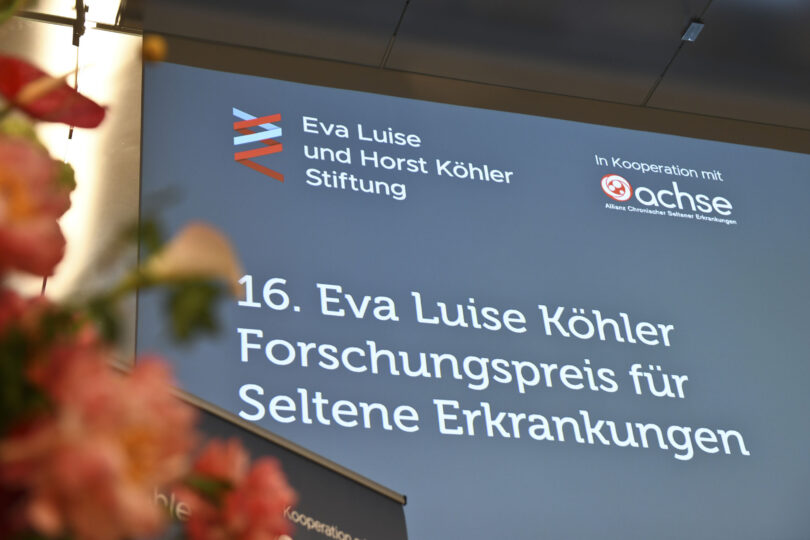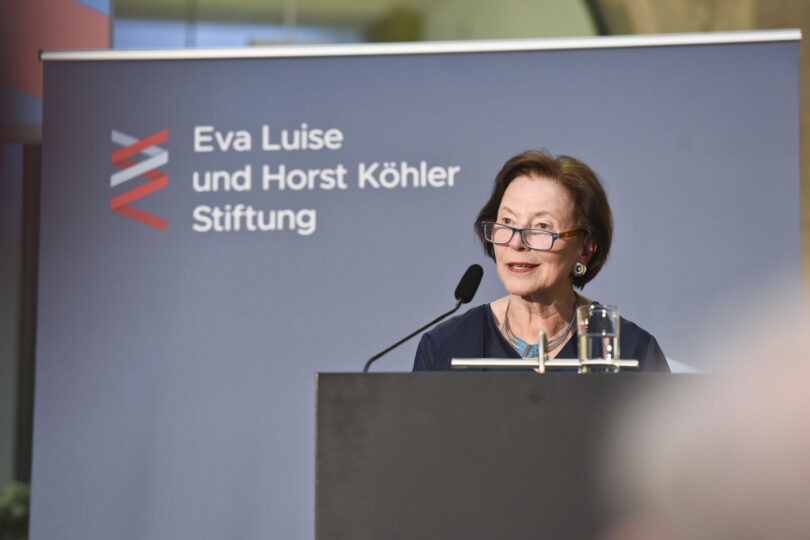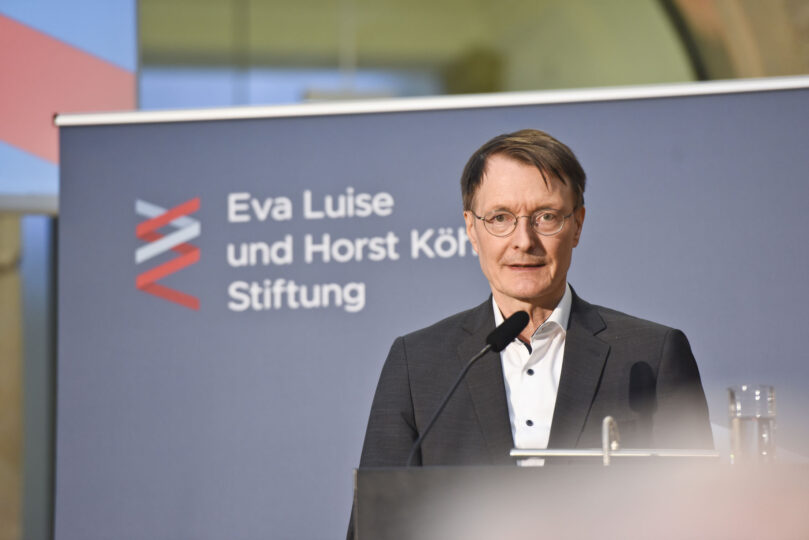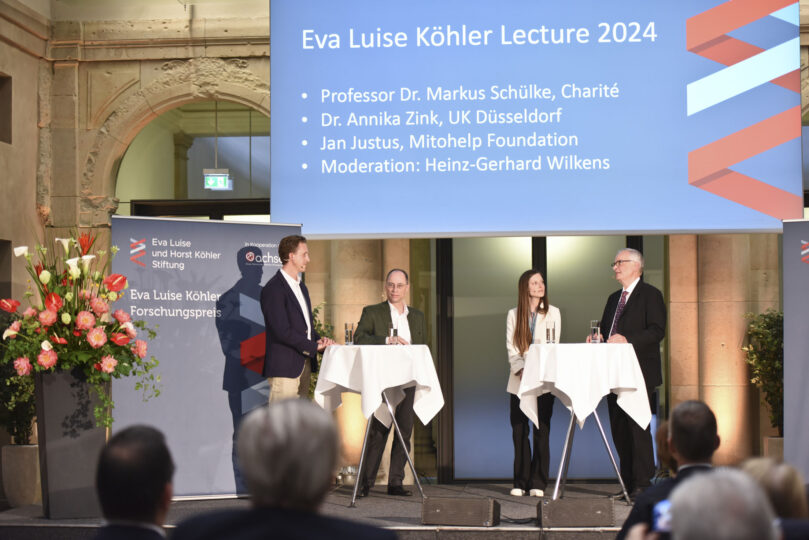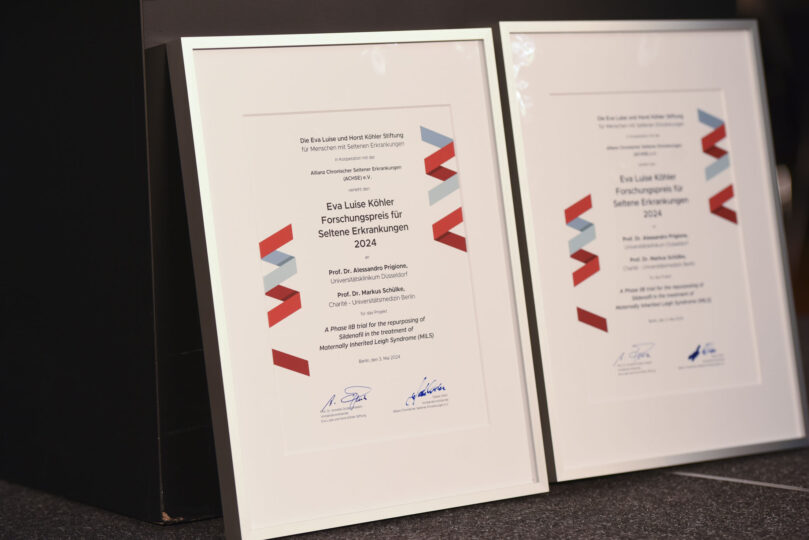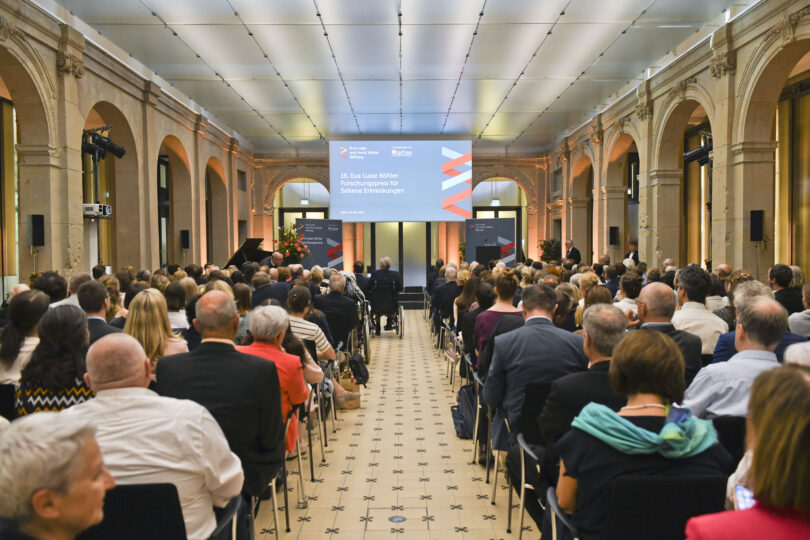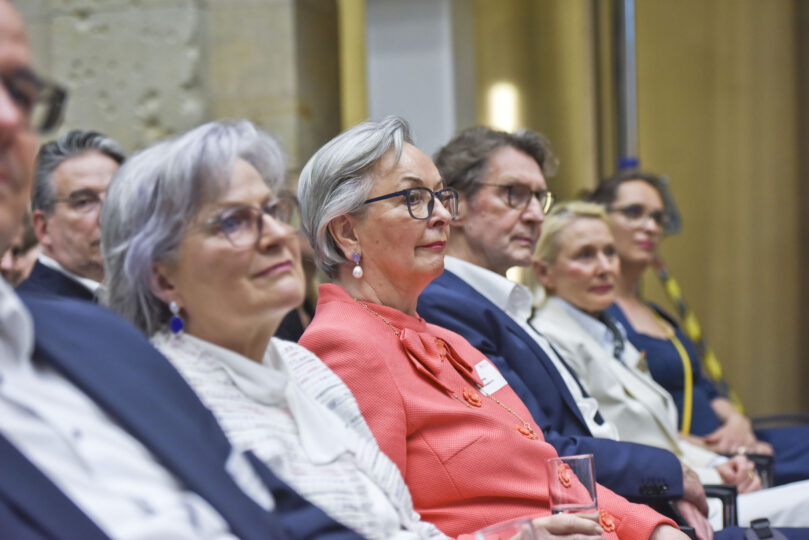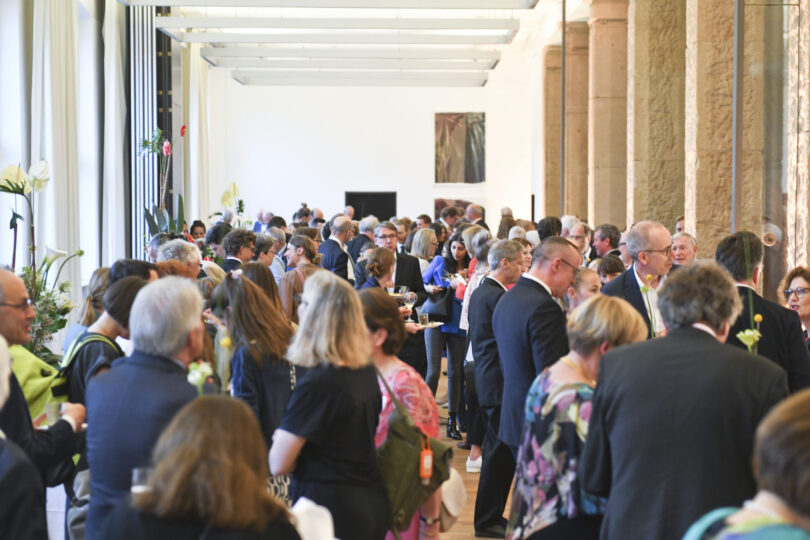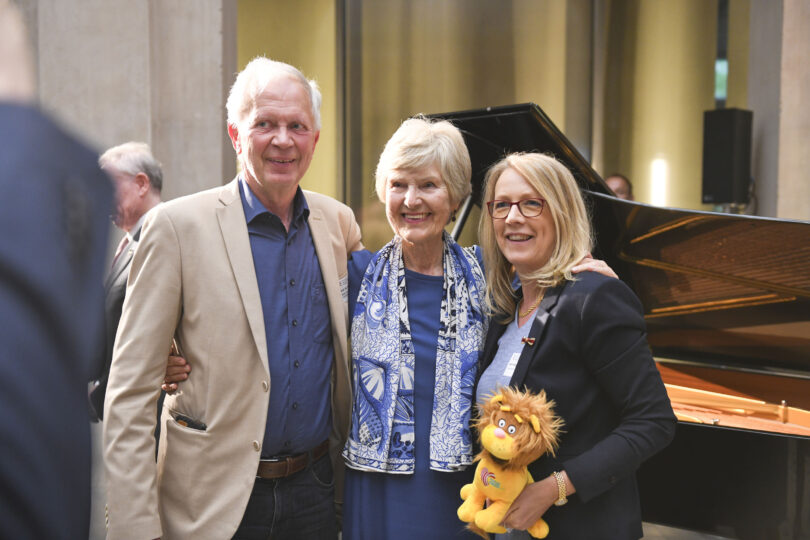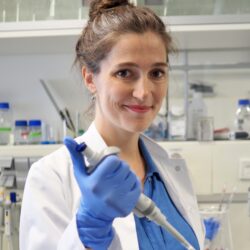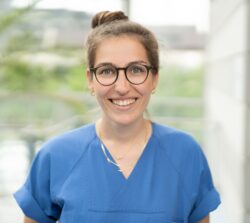Federal Health Minister Lauterbach assures political support
“Medical progress often does not reach people with rare diseases. This cannot and must not happen!” Federal Minister of Health Prof. Dr. Karl Lauterbach addressed this clear message not only to the invited guests at the Berlin-Brandenburg Academy of Sciences and Humanities during the award ceremony for the 16th Eva Luise Köhler Research Award for Rare Diseases on May 3, 2024, but also to all people living with rare diseases. He assured: “The Federal Government will provide support for important research into rare diseases!”
For the second time, the Federal Minister accepted the invitation of the Eva Luise and Horst Köhler Foundation to attend the research award ceremony. Prof. Dr. Alessandro Prigione from Düsseldorf University Hospital and Prof. Dr. Markus Schülke from Charité – Universitätsmedizin Berlin were honored for their groundbreaking work on maternally inherited Leigh’s disease (MILS).
Research with patient relevance: Therapeutic perspectives for mitochondrial Leigh syndrome
In a lecture talk moderated by Heinz-Gerhard Wilkens, Professor Schülke and Dr. Annika Zink, representing Professor Prigione, explained how the progressive rare hereditary disease affects the energy metabolism of mitochondria, the “power plants” of human cells. MILS specifically attacks the central nervous system and causes severe disorders in both the mental and motor areas. A cure is not yet possible and many affected children die at an early age.
Using reprogrammed nerve cells, the researchers showed how they have succeeded in developing a promising treatment approach with the already approved active ingredient sildenafil. Encouraging initial study results give hope for a therapy in the near future. The European Medicines Agency (EMA) has already approved its use for MILS therapy in accordance with the Orphan Drug Designation (ODD). A Europe-wide multicenter study for further clinical testing of the active substance is due to start shortly.
Jan Justus, founder of the Mitohelp Foundation and father of an affected child, summed up what hope this means for patients and their families: “This research can make a real difference in the lives, it gives hope and confidence. We thank everyone who makes this possible!”
The Eva Luise Köhler Research Award, endowed with 50,000 euros, will enable Professor Prigione and Professor Schülke to carry out studies to identify biomarkers that provide information about the influence of sildenafil on cellular mitochondrial metabolic pathways, the individual course of the disease and therapeutic effects.
Drug repurposing: sildenafil as a promising and affordable treatment option
In her laudatory speech, Prof. Dr. Annette Grüters-Kieslich, Chairwoman of the Eva Luise and Horst Köhler Foundation, explained why the innovative research project was so convincing: “This is not a new, very expensive therapy, but rather the use of a drug that has already been approved for another indication, a so-called drug repurposing. There is enormous potential here for the treatment of rare diseases.”
Geske Wehr, Chairwoman of the Alliance of Chronic Rare Diseases ACHSE e.V., emphasized how great the need is: “Statistically speaking, one child in every primary school class is affected by a rare disease.” Research is of great importance for those affected – but good care in everyday life must also be ensured. This requires the joining of forces as well as consideration of the specific care needs of patients with rare diseases.
“Paths are easier to travel when you set out on a journey together”
Eva Luise Köhler also highlighted the importance of collaboration and alliances in her welcoming address. She referred to the new approaches that the Eva Luise and Horst Köhler Foundation has been pursuing for two years with the Alliance4Rare research initiative. “This is only possible with committed and supportive partners at our side. Together, we are shaping a future model for pediatric research in Germany. We are also making the ‘medicine of tomorrow’ a reality for the orphans of medicine.” The fact that the Alliance4Rare network is constantly growing nationwide fills Eva Luise Köhler with gratitude and confidence – and motivates her for the next steps: “Let’s continue on the path to a better future for people with rare diseases together with determination. The effort is worth it, that’s for sure!”
Photos: Andrea Katheder
If you’d like to see more impressions of the award ceremony, you can find them here: 16th Eva Luise Köhler Research Award
The award winners
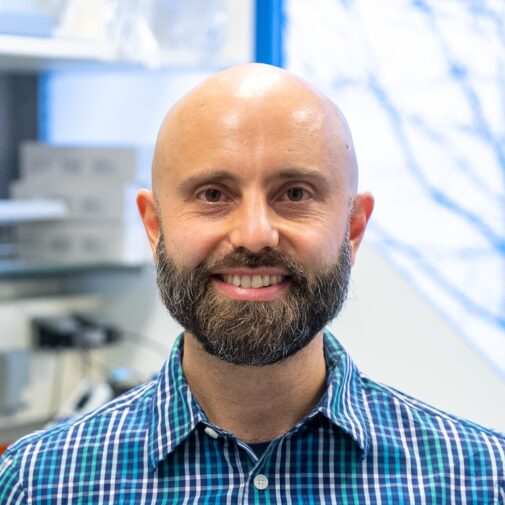
Prof. Dr. Alessandro Prigione was born in Milan, where he studied medicine at the Universitá degli Studi di Milano and obtained his doctorate in molecular medicine and neuroscience at the University of San Raffaele. Prigione was a Delbrück Fellow at the Max Delbrück Center for Molecular Medicine in Berlin before being appointed W2 Professor of Pediatric Metabolic Medicine at Heinrich Heine University Düsseldorf in 2019. His research focuses on the use of induced pluripotent stem cells and organoid models to study the molecular mechanisms of rare pediatric neurological mitochondrial disorders.

Prof. Dr. Markus Schülke studied medicine at Saarland University, the Free University of Berlin, University College Dublin and the University of Hong Kong. He received his doctorate from the Free University of Berlin in 1993 and worked as a pediatrician and neuropaediatrician in Germany, the Netherlands and India. Prof. Dr. Schülke has been Professor of Experimental Neuropaediatrics at Charité – Universitätsmedizin Berlin since 2010. His research interests focus on genetic neuromuscular and mitochondrial diseases, in particular the discovery of new disease-causing genetic defects using modern bioinformatic methods. As spokesperson for the DFG research group “Beyond the Exome”, he is currently dedicated to uncovering mutations in the regulatory genome, with a particular focus on transferring basic scientific findings to the care of patients with rare diseases.

